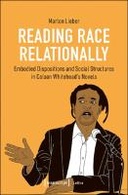Explore

What does it mean to write African American literature after the end of legalized segregation? In this study of Colson Whitehead's first six novels, Marlon Lieber argues that this question has permeated the Pulitzer Prize-winning author's writing since his 1999 debut The Intuitionist. Drawing on Pierre Bourdieu's relational sociology and Marxist critical theory, Lieber shows that Whitehead's oeuvre articulates the tension between the persistent presence of racism and transformations in the United States' class structure, which reveals new modes of abjection. At the same time, Whitehead imagines forms of writing that strive to transcend the histories of domination objectified in social structures and embodied in the form of habitus.
This book is included in DOAB.
Why read this book? Have your say.
You must be logged in to comment.
Rights Information
Are you the author or publisher of this work? If so, you can claim it as yours by registering as an Unglue.it rights holder.Downloads
This work has been downloaded 33 times via unglue.it ebook links.
- 33 - pdf (CC BY-SA) at OAPEN Library.
Keywords
- African American literature
- America
- American Studies
- Colson Whitehead
- literary studies
- Literature
- Pierre Bourdieu
- Postcolonialism
- Race and Racism
- Racism
- thema EDItEUR::D Biography, Literature and Literary studies::DS Literature: history and criticism::DSB Literary studies: general
- thema EDItEUR::N History and Archaeology::NH History::NHT History: specific events and topics::NHTR National liberation and independence
Links
DOI: 10.14361/9783839463468Editions

